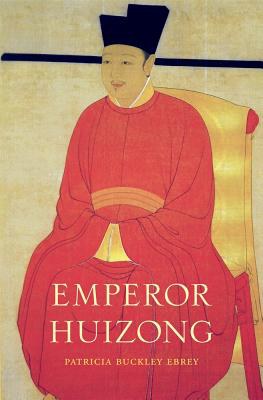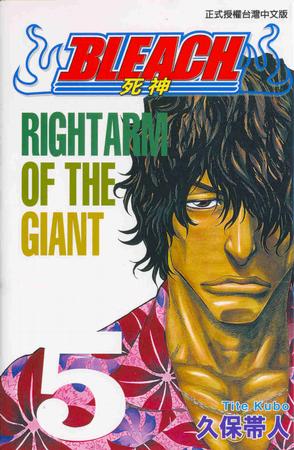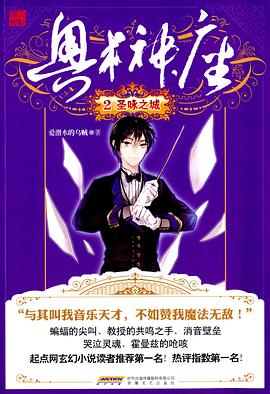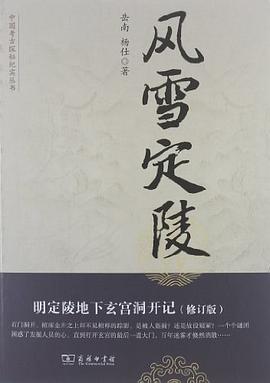Emperor Huizong
内容简介
China was the most advanced country in the world when Huizong ascended the throne in 1100 CE. In his eventful twenty-six year reign, the artistically-gifted emperor guided the Song Dynasty toward cultural greatness. Yet Huizong would be known to posterity as a political failure who lost the throne to Jurchen invaders and died their prisoner. The first comprehensive English-language biography of this important monarch, Emperor Huizong is a nuanced portrait that corrects the prevailing view of Huizong as decadent and negligent. Patricia Ebrey recasts him as a ruler genuinely ambitious—if too much so—in pursuing glory for his flourishing realm.
After a rocky start trying to overcome political animosities at court, Huizong turned his attention to the good he could do. He greatly expanded the court’s charitable ventures, founding schools, hospitals, orphanages, and paupers’ cemeteries. An accomplished artist, he surrounded himself with outstanding poets, painters, and musicians and built palaces, temples, and gardens of unsurpassed splendor. What is often overlooked, Ebrey points out, is the importance of religious Daoism in Huizong’s understanding of his role. He treated Daoist spiritual masters with great deference, wrote scriptural commentaries, and urged his subjects to adopt his beliefs and practices. This devotion to the Daoist vision of sacred kingship eventually alienated the Confucian mainstream and compromised his ability to govern.
Readers will welcome this lively biography, which adds new dimensions to our understanding of a passionate and paradoxical ruler who, so many centuries later, continues to inspire both admiration and disapproval.
......(更多)
作者简介
Patricia Buckley Ebrey is Professor of History and Chinese Studies at the University of Washington.
......(更多)
目录
Learning to rule, 1082-1108
growing up in the palace,1082-1099
Palace Life/ Huizong’s immediate family/Diversions/ Education/The Capital, Kaifeng/ Talented Friends and Acquaintances(王詵)/Family Drama/
Taking the Throne, 1100
The day of succession/ Empress Dowager Xiang’s Participation in the Government/ Factional Politics/ On-the-Job Training/ The Return of Anti-Reformers /Ousting the Top Reformers/ Zhezong’s Funeral
Trying for Balance, 1101-1102
Coalition government/ Warnings of Heaven’s displeasure/ The temple of spectacular Numina/ The Suburban sacrifices/ Financial Matters/
Choosing the Reformers, 1102-1108
Cai Jing as Grand Councilor/ Charitable Ventures/ The Ban on Opponents/ Suppression of the Writings of Su Shi and His Circle/ Expansion of Government Schools/ Imperial Brush Edicts/
Striving for Magnificence,1102-1112
Placing faith in Daoism, 1100-1110
Liu Hunkang/ Temples and Rituals/ Local Shrines/
Embracing and Revitalizing Tradition
The Music of great brilliance/ The Nine Cauldrons/ The celebration of Auspicious Signs/
Welcoming Masters and Experts.
Physicians/ Builders/ the Painting School/ Court Painters/
Crafting an Image as an Artist
Huizong’s Slender Gold Calligraphy/ Huizong as a Painter/ Huizong as a Poet/
Anticipating Great Things, 1107-1120
Pursuing the Monumental
A new ritual code/ A new Daoist Canon/ Visual Documentation of Auspicious Signs/ Collections of cultural treasures/ the Bright Hall/ the Northeast Marchmount/
Finding Pleasures in Court and Palace Life
Poetry in Culture of Huizong’s court/ Banquets and Garden Parties/ Consorts and Children/ Gossip about Huizong’s Love life
Working with Councilors
Cai Jing and the Council of State/ Policymaking and the Issue of Currency/ Trusted Eunuchs/
Accepting Divine Revelations, 1110-1119
Seers, Dreams, and Visions, Stepped-Up Patronage/ Lin Lingsu’s Revelations/ State Support for the Divine Empyrean/
Allying with Jin
Balance of Power in the North/ New Opportunities/ Negotiations through envoys/
Confronting Failure, 1121-1135
Adjusting to military setbacks, 1121-1125
Fang La’s uprising/ Strains in the Alliance/ Military Embarrassment/ The New Territories/
Abdicating the Throne, 1125-1126
The decision to abdicate/ The Trip South/ A forced return/
Losing Everything, 1126-1127
The fall of Kaifeng/ Qinzong’s departure/ green enclosure/
Enduring Captivity, 1127-1135
Convoys/ Yanjing/ Alien Lands/ The fate of Huizong’s family/
......(更多)
读书文摘
p.455:1144年,宋高宗抱怨说,当时流传的私人记录中经常有错误:“靖康以来私记,极不足信。上皇有帝尧之心,禅位渊圣,实出神断,而一时私传以为事由蔡攸、吴敏。上皇曾谕宰执,谓:‘当时若非朕意,谁敢建言,必有族灭之祸。’”如果当时的人都很难辨别哪些史料更可信,那我们在将近九百年之后可能会被误导,也毫不奇怪。
自汉代以来,确保对政策批评的通道畅通就一直是中国政府机构的一条基本原则,因此,迫使反对者噤声被视为逾越了政治合法行为的界线。
......(更多)






